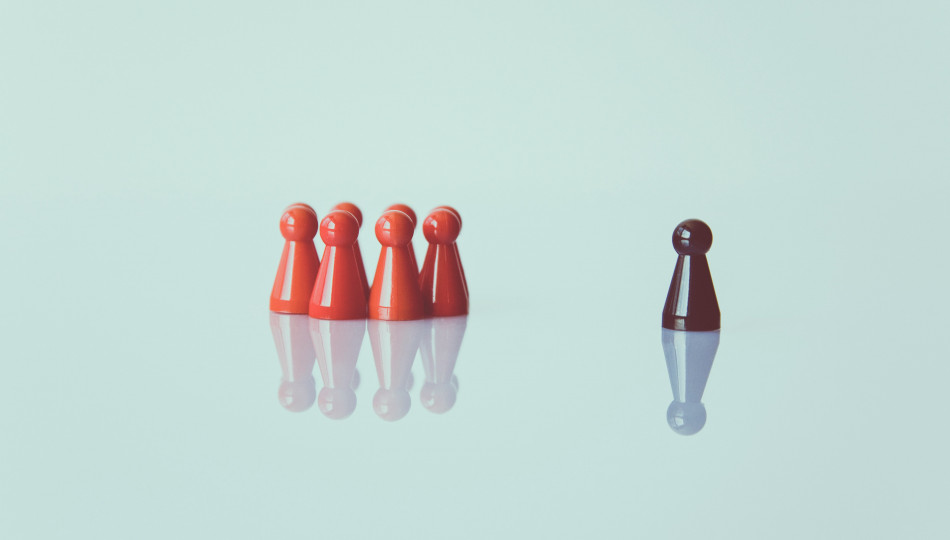Stereotypes: what are they? (And why they are probably bad for you)

Editor

Photo by Markus Spiske on Unsplash
related articles
Stereotypes – we all know them, whether we want to admit it or not. They’re like that nosy neighbor who insists they know everything about you based on a two-second glance out their window. They reduce complex human beings into a handful of oversimplified traits, often with a hefty sprinkle of misunderstanding or prejudice.
But why do stereotypes even exist?
How do they mess with our heads (and society)?
And, most importantly for our discussion today, what’s the deal with Polish stereotypes?
What are stereotypes, anyway?
Stereotypes are assumptions or generalizations about a group of people, often based on their race, nationality, gender, weight, or other characteristics.
Merriam-Webster dictionary defines stereotypes as: “…a standardized mental picture that is held in common by members of a group and that represents an oversimplified opinion, prejudiced attitude, or uncritical judgment.”
Simply put, they’re like those hastily written summaries on the back of a novel – except instead of telling you what the story's really about, they give you a reductive (and frequently widely inaccurate) plot summary.
For example, people might say: “French people are so romantic” – never mind that there are plenty of French people out there who'd rather watch Netflix than woo their beau under the Eiffel Tower.
How do stereotypes form?
But where do the stereotypes come from? How do they form in our societal consciousness?
Well, some people say that stereotypes can start from a grain of truth, which then later gets exaggerated beyond recognition.
They can form through historical misunderstandings and prejudices, media portrayals, or even as a way for people to make sense of the world by categorizing things. Humans love putting things in boxes – whether it’s sorting socks or, well, sorting people. Unfortunately, when it comes to people, these boxes tend to be a tad too small and end up leaving out all the fascinating complexities that make us unique.
Our brains are wired to take shortcuts, and stereotypes offer a convenient way to understand the unfamiliar. Instead of taking the time to know an individual or a culture, we just grab onto the nearest stereotype like it’s a life raft in a sea of confusion.
Easy? Sure. Accurate? Not so much…
What are the consequences of stereotyping?
As generalizations, stereotypes don’t allow for nuance – they're the fast-food version of human understanding. Quick, greasy, and usually bad for you.
And here is why:
- They erase individuality. Stereotypes reduce people to one-dimensional caricatures, os themselves.
- They fuel prejudice and discrimination. Believing stereotypes leads to biased treatment in jobs, education, and daily life. They’re the first step toward full-blown prejudice.
- They are self-fulfilling prophecies. If a group is consistently told they're bad at something or destined for failure, they might start to believe it themselves.
- They divide cultures. Instead of celebrating diversity, stereotypes emphasize differences negatively. This leads to an "us versus them" mentality, creating unnecessary friction between different cultures, genders, or ethnic groups.
What can we do about stereotypes?
Look, we all know it’s easy to fall into the trap of stereotyping. We all do it. All in all, it’s a way to make sense of the world. A rather lazy way, sure, but a way anyway.
But that doesn’t mean we have to keep feeding into it. As much as to some degreHere are a few things we can all do to help break down those pesky stereotypes:
When someone makes a stereotypical comment, speak up. Even if it’s said in jest, pointing out that it’s inaccurate or unfair can help others reflect on their own assumptions.
Read books, watch documentaries, and learn about different cultures from reliable sources. The more you know, the less likely you are to fall for stereotypes.
Instead of relying on broad generalizations, why not try talking to people? You might find that your assumptions don’t hold up when you get to know someone on a personal level.
Rather than focusing on what makes people “different” in a negative way, focus on the unique qualities that every culture brings to the table.
Sources:
Brigham, J. C. (1971). Ethnic stereotypes. Psychological Bulletin, 76(1), 15–38. https://doi.org/10.1037/h0031446
Merriam-Webster, “Stereotypes”
Quebeck.ca, “Effects of Stereotypes on Personal Development”












